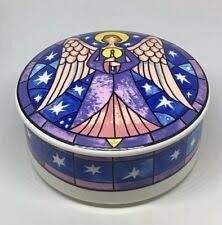The important thing is not to think much but to love much, and so do whatever best awakens you to love.
Teresa of Avila
Blog
It was 1943 and I was in my senior year of kindergarten. The Second World Was in the Netherlands was intensifying and most families were focused on safety, the basics of life such as food, shelter and the continuation of education and health care in cities not destroyed by war.
In my Kindergarten class in the mornings, we started off sitting in assigned places. Usually it was girl, boy, girl, boy. Carl Leonard sat next to me in a double seat. The reason I remember him is because he had lots of energy and found an outlet for it by pulling as many of the girls’ braids as he could reach as well as pulling on their earrings which some girls wore. These silver earrings were usually in the shape of tiny acorns that hung down from their pierced ear lobes. Despite Carl’s behaviour, somehow, I thought my joy would be complete if I could wear earrings. Dealing with Carl would be a minor irritation.

Image: Unsplash/Daihana Monares
Instinctively I knew that if I asked my mom for earrings her reply would probably be that one of my ten siblings were in the line-up for such items as hand-knitted sweaters, coats, or shoes. She did not exactly state that, but I knew how the family budget worked. Earrings were not high on the list of priorities.
I had tried several times to make the earring request to my dad, but the standard reply was “We’ll see”.
One day, somewhat like the persistent woman of the Gospel and the judge (although my case was not so much about justice), I opened the door to our store situated at the front of our house thinking that all the customers had gone. Ordinarily this move was out of bounds for us children especially when there were customers in the store. I saw only Dad and after pulling him down to my height I whispered in his ear once again “Could I please have a pair of earrings?” Just as he had said “We’ll see”, I saw Mrs. B., a regular customer, whom I had not noticed, still in the store. I left, determined as ever to persist in my quest.

The following week Mrs. B came back for her weekly shopping and asked my dad if I could come to see her in the store. What I obviously did not know and found out much later was that Mrs. B. had inquired what I had whispered into Dad’s ear the week before. Mrs. B. showed me a tiny round box with the picture of an angel’s head on it. When she opened the box there was a small pair of gold earrings with a coral stone in each center. I just could not believe that such earrings existed. My father thanked Mrs. B. and then indicated I should also do so, which I did. Only much later did I discover that my father did compensate Mrs. B. for this gift. What could not be compensated for was the loss Mrs. B. shared with my parents only.
The earrings had belonged to Mrs. B’s only daughter who had died during the war in a bombardment.
In my reflection on this remote memory, I realized that out of the immense pain of losing her only child, Mrs. B (who was widowed) had found the generosity and courage to gift me with a precious possession of her only child. This paradox of deep and lasting pain which gives the gift and the joy of a child who receives the gift shows the capacity of the human heart to be generative, reach out and create something positive which moves us to Wholeness.
-Sister Mary Vandersteen, csj

Olga’s birthday cake with edible flowers
On April 20, 2023, our dining room was set in festive array to celebrate Sister Olga’s 100th birthday. The tables were adorned with white tablecloths and yellow roses. Nearby, on a long table stood an impressive display of congratulatory framed messages from Pope Francis, Governor General Mary Simon, Prime Minister Pierre Trudeau, and Ontario Premier Doug Ford. Being born and raised in Edmonton, the Alberta government agencies also sent official greetings to Sr. Olga.
Special guests included members of Sister’s family from Edmonton and Mississauga. It was beautiful to see Olga engaged in lively conversation with two of her young great- grand nieces. In addition, close friends and our sisters filled the dining room as the party continued throughout the afternoon.

Heartwarming pictures of Sister Olga as well as accompanying documents, indicated the life of love and service that was hers. The photos attested to Sister being a woman of love in action. As a young woman, she was a teacher and loved sports and many other activities. Sometime later, she joined the air force and served on the East Coast. Before entering the Sisters of St. Joseph, in 1959, Olga earned a degree in psychology which later led to a doctorate. This enabled her as a woman of great faith and compassion to pour out her love in varied service throughout her many years in ministry. Included in her postings were teaching and counselling at Brescia College, St. Joseph’s School of Nursing London, Faro Yukon, McKenzie Diocese YK, and healing ministry among Indigenous peoples.
Sister’s final seventeen years of ministry were at London Psych Hospital where she ministered to vulnerable people in need of a healing presence and as Carl Rogers taught, with “unconditional positive regard”. This Sr. Olga did with gentleness, peace, and joy. How wonderful to gather and praise our newest centenarian.
Congratulations, Sister Olga!
-Sister Jean Moylan
In Sacred Scripture, Jesus refers to himself as the Good Shepherd. What is Jesus’ experience of shepherds? Wasn’t Jesus a carpenter and the son of a carpenter? Have you wondered why he calls himself a shepherd? I have and I can only imagine that he had admiration for the simplicity of life of this humble yet essential profession. Also, Jesus would have been familiar with the prophet of old who promised a messianic shepherd to the people in the new Israel. (See Ezekiel 34)

Image: Unsplash/Patrick Schneider
We know from Luke’s Gospel that the shepherds were the first to witness the message of the angels and that they would find “in a manger an infant wrapped in swaddling clothes.” These shepherds were also the first to be abused for spreading the good news in and around Bethlehem.(Luke 2) They suffered because the good news they spread resulted in the deaths of their own babies in Bethlehem, at the command of Herod. (Matt.2)
““I am the good shepherd. The good shepherd lays down his life for the sheep””
I can imagine Jesus listening to his mother Mary telling him about the place of his birth and of the shepherds who brought them assistance in their time of great need in Bethlehem. Maria Valtorta, a modern day mystic, records in her visions that Jesus returned to the place of his birth as a young man where he met some of the shepherds who were still living and who remembered his mother and the unforgettable message of the angels. Maria Valtorta also wrote of seeing these same faithful shepherds mingling helplessly among the crowds in Jerusalem on the day of the crucifixion. They knew Jesus was the Messiah but were as confused as the apostles at what was taking place in Jerusalem.

Image: Unsplash/mahyar motebassem
Jesus loved the faithful shepherds who thought only of their flocks and of keeping them well fed and safe from harm. Sheep being defenseless and in need of a shepherd is a beautiful image we have inherited of the relationship between God and God’s people. We, like sheep, are free to stay with the shepherd and graze on good food or are free to wander off, losing ourselves in the brambles of selfish endeavours. It’s all about choosing to have a relationship with a Good Shepherd. The Good Shepherd says,
“. . .love one another as I have loved you.” (John 15:12, 15:17)
-Sister Elaine Cole, CSJ
Header Image: Unsplash/Greg Rosenke